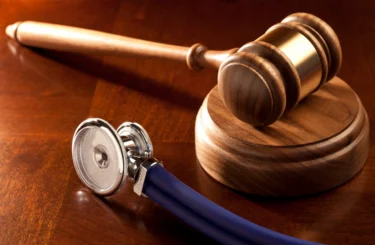How Doctors Can Avoid Being Sued for Medical Malpractice
According to USA Today, there are ways a physician can reduce the chance of a medical malpractice lawsuit:
Apology Laws
Wouldn’t it be great if states encouraged a doctor to say, “I’m sorry” if a mistake was made? To date, federal efforts at a national act have failed and no jurisdiction has put a law on its books either, although 36 states have passed legislation that protects apologies from being admitted as evidence against doctors in the courtroom. If there’s any doubt that such a measure would work, you need only look to the University of Michigan Health System – they’ve had an apology program in place for more than ten years, and the number of medical malpractice suits against the them has dropped 36%.
Better Physician-to-Patient Communication
Regardless of the presence or absence of an apology law, many believe that doctors can prevent lawsuits simply by being better communicators. A 1999 report from the Institute of Medicate indicated that, at the time, 90% of the 100,000 deaths that occur each year were attributable to “systemwide procedural failures” at medical facilities. The doctor, as the quarterback for a patient’s healthcare team, is the most qualified and most effective spokesperson to explain that not all adverse outcomes are due to physician or hospital errors.
Transparency
We all know that patients are routinely asked to give their informed consent to medical treatment and procedures. And while this helps the patient to understand the potential risks, many argue that it doesn’t fully educate the patient about underlying processes and systems. The USA Today article cites “the seemingly simple task of dispensing a drug at a hospital. It’s actually a complex process that requires five interdependent steps: ordering, transcribing, dispensing, delivering and administering. A poorly designed system can lead to an error in any of those steps, with a potentially deadly outcome.” Giving patients glimpses into the complexity and rationale behind their treatment makes them more educated consumers and perhaps more realistic in their expectations.
Demonstrate Humanity & Humility
Patients need to understand that doctors are people, too. A study published last year in the Journal of the American College of Surgeons found that physicians sued for medical malpractice were more susceptible to burnout, depression, and even suicide, along with a greater propensity to make mistakes when caring for patients. Consequently, the argument is being made that fewer lawsuits might leader to better medical care, something doctors can do with clearer communication.
Interestingly, a TEDxToronto presentation given by Dr. Brian Goldman last fall offers another perspective, not commonly considered in the medical malpractice arena. For a physician to admit a mistake to a colleague has traditionally been taboo, leading to what Dr. Goldman calls “unhealthy shame.” Doctors who are discouraged from admitting errors and seeking support and dialogue with others often drive themselves to “redouble their efforts to be perfect” making the fall from a subsequent mistake that much more devastating. All the public bravado, combined with quiet self-doubt, has to have some impact upon patient care.
Apology or not, if you or a loved one have been injured or damaged by what you suspect is hospital or doctor negligence, call our team of medical malpractice specialists.
Robert B. Sickels
For more than 30 years, Robert Sickels has successfully represented plaintiffs involved in complex personal injury, medical negligence, and products liability matters.





